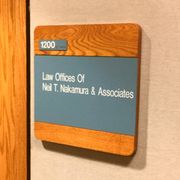
Medicaid, also known as MedQuest in Hawaii, is a health insurance program for low-income individuals. While most people have likely heard of the program, many have questions about it, including how to qualify and what Medicaid planning is. If you’re wondering how the program can benefit you or a loved one, here are answers to some of the most frequently asked questions about it.
4 Common Questions About Medicaid
What are the eligibility requirements?
In Hawaii, Medicaid can cover children, pregnant women, parent and caregiver relatives, those with disabilities, and those age 65 and older. To be eligible, applicants must meet a certain income limit based on the size of their family. For example, if there are four people in the applicant’s family, their income can’t exceed $3,208 per month.
What types of income and assets does Medicaid count to determine eligibility?
 When you apply for Medicaid, any income you receive will be counted, including employment wages, veteran’s benefits, Social Security Disability Income, Social Security Income, Supplemental Security Income, and pension payments.
When you apply for Medicaid, any income you receive will be counted, including employment wages, veteran’s benefits, Social Security Disability Income, Social Security Income, Supplemental Security Income, and pension payments.
If you’re blind, disabled, or aged 65 or older, the program will also consider some of your assets, such as cash, stocks, bonds, and investments. However, it won’t consider your personal belongings, like clothing, furnishings, or vehicles.
It also won’t consider assets for children, pregnant women, parent or caregiver relatives, or adults under 65.
How do I apply for Medicaid?
Apply online or call the Hawaii Connector Call Center at 1-877-628-5076 (1-855-585-8604 for TTY/TDD users). You’ll need to provide the following information:
- Date of birth
- Social Security Number
- Last year’s federal income tax form (forms 1040 or 1040EZ) or your household’s current gross monthly income
If you’re a non-citizen, you’ll also need your Naturalization Certificate, Certificate of Citizenship, Permanent Resident Card (“Green Card”), Arrival/Departure Record, or Refugee Travel Document.
If I don’t meet the eligibility requirements, can I still qualify?
If your income or assets exceed the eligibility requirements, there are two ways you might still qualify for Medicaid:
-
Medically Needy Pathway: If you have high medical expenses, you may be able to take advantage of the Medically Needy Pathway. To do so, you would need to “spend down” your income to the Medicaid income limit by using the excess income to pay for medical services and goods, such as prescription drugs and unpaid medical bills. Once you’ve spent the excess income, Medicaid will cover the remainder of the Medically Needy period, which is one month.
- Medicaid Planning: Consult with Medicaid planning professionals, such as attorneys and financial planners, to determine how you can keep as many assets as possible and still qualify for Medicaid.
Worried that your income or assets will make you ineligible for Medicaid? Turn to the Law Offices of Neil T Nakamura & Associates. With over 43 years of experience, these Honolulu-based attorneys provide comprehensive Medicaid planning services. Learn more about their offerings online, and call (808) 945-7645 to schedule a free consultation.
About the Business
Have a question? Ask the experts!
Send your question

